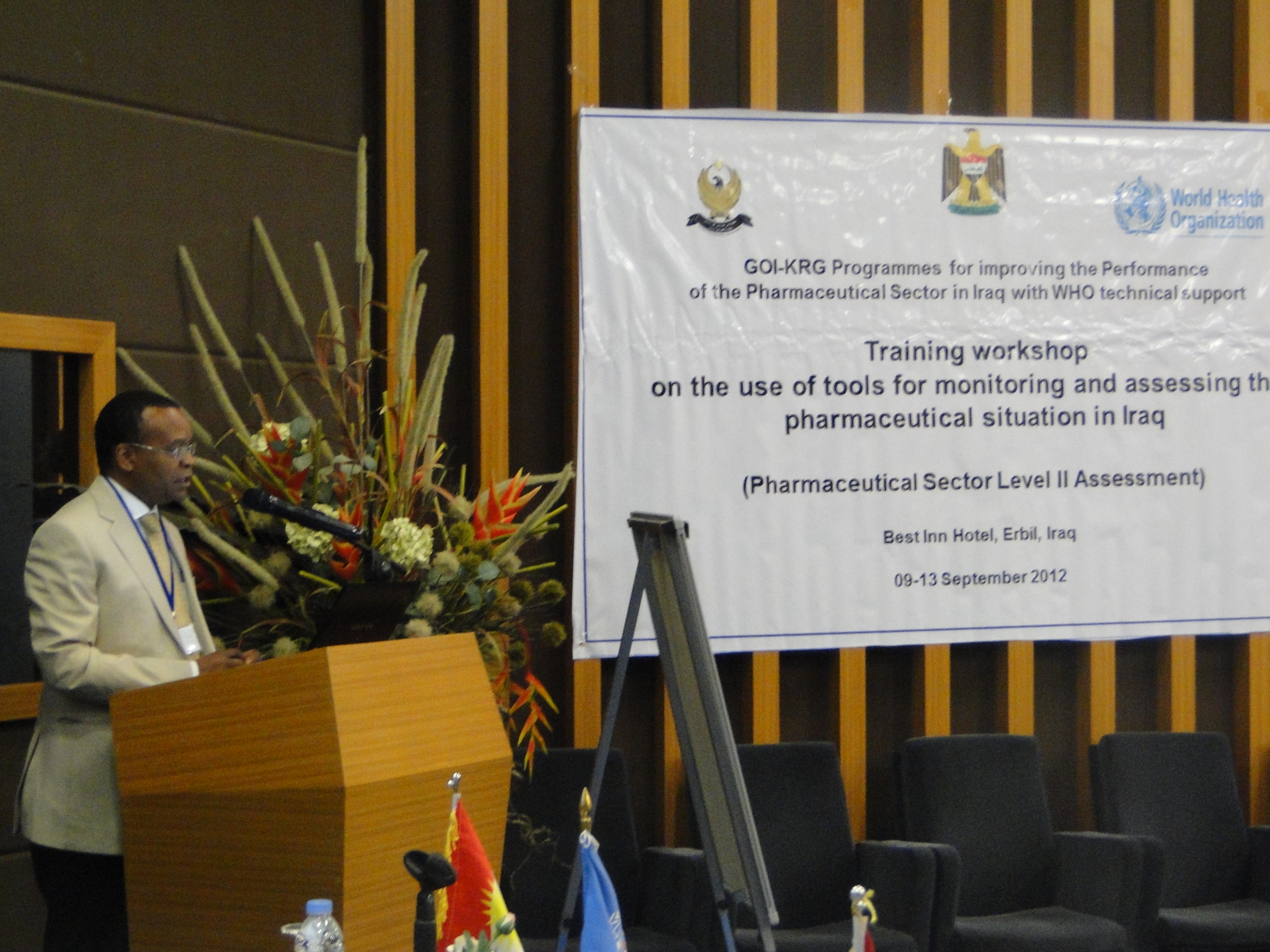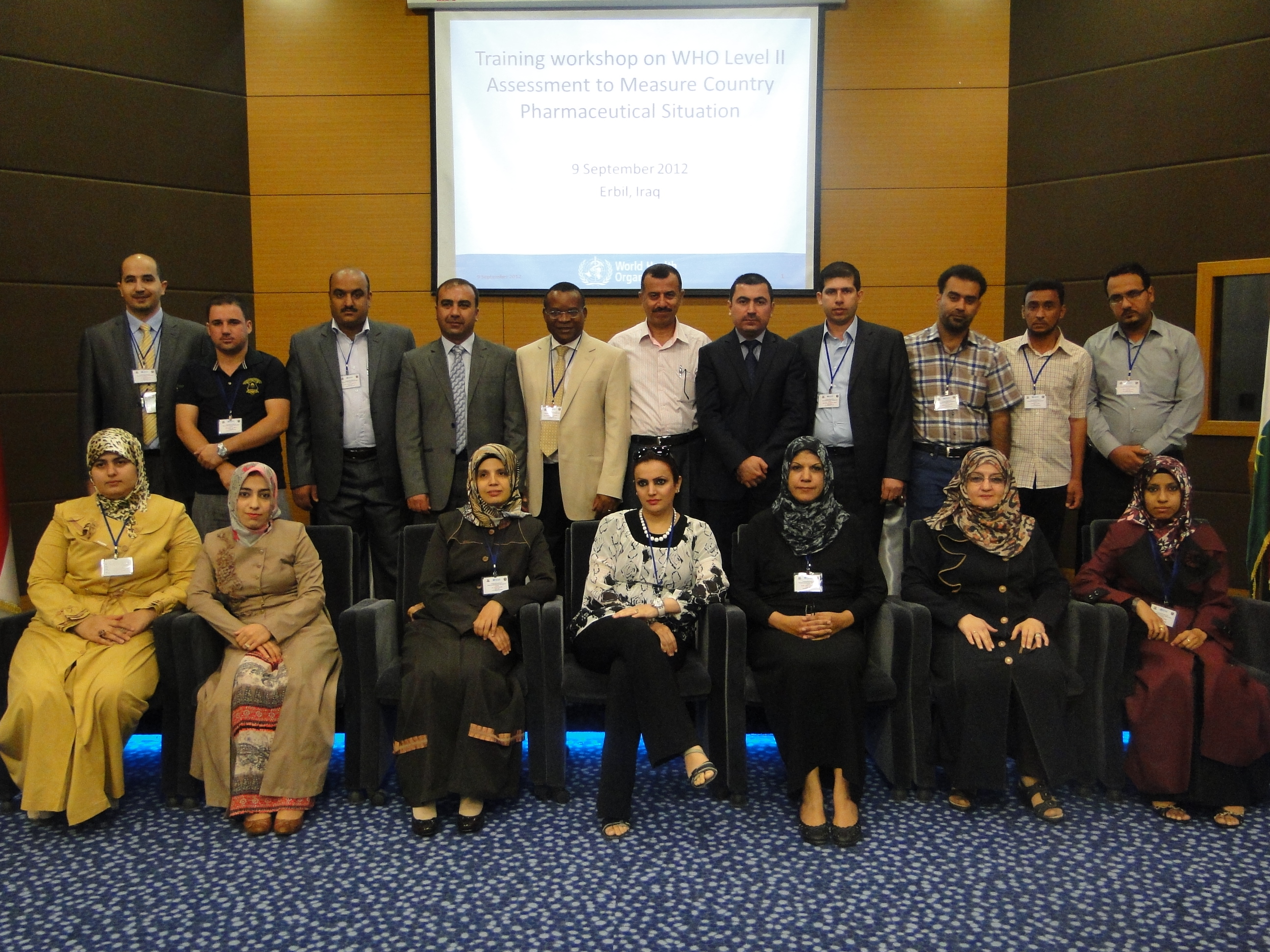Erbil, The Ministry of Health of Iraq and the Ministry of Health of the Kurdistan Regional Government, with the technical support of World Health Organization, launched a five day training workshop (9 to 13 September 2012) for data collectors on the use of the WHO operational package for assessing, monitoring and evaluating the country pharmaceutical situation, also known as pharmaceutical sector level II assessment.
 Five governorates in Iraq have been randomly selected to conduct a pharmaceutical sector level II assessment
Five governorates in Iraq have been randomly selected to conduct a pharmaceutical sector level II assessment
For Iraq, five governorates (Anbar, Baghdad, Basra, Erbil and Muthana) have been randomly selected to serve as a representative sample of Iraq where the pharmaceutical sector Level II assessment will be conducted. The objective of the workshop is to train the assessment team comprising of two survey coordinators and 10 data collectors (two from each one of the five governorates) and 7 members of the national coordination committee on the use of the WHO developed tools.
In his address to the participants, Dr Dara Rasheed, Director General of Technical Affairs representing H.E. Dr Rekwat, Rashid, the Minister of Health of the Kurdistan Regional Government, stated that the Ministry understands the complexities of dealing with pharmaceutical sector issues. He added that this assessment will assist in addressing the current situation characterised by lack of baseline data needed for developing evidence based policies in addition to improving pharmaceutical services in the region and in strengthening the Kurdistan Medicine Control Agency (KMCA) as a first step towards ensuring that no substandard medicines are allowed to circulate in the region.
Dr. Jamila Zgayeir Lafta, representing H. E. Dr Majeed Hamad Amin, the Minister of Health of Iraq indicated in her opening remarks that ”availability of medicines is a cornerstone in any healthcare system, as any shortage will negatively affect the whole healthcare process. For this reason, it is important for the Ministry of Health to assess and analyse how efficient the pharmaceutical services in Iraq are in making medicine available for all people in need; which in turn will enable us to identify strengths and weaknesses, and recommend solutions to improve these services." Dr.Jamila thanked the World Health Organization for the continuous technical and logistical support they have been providing and for allowing the Ministry of Health to benefit from the experience of other countries in the world".
WHO Representative, Dr. Jaffar Hussain, stated that this assessment is important for Iraq as it will contribute to developing outcome indicators that will provide adequate answers to the three key questions regarding whether the population has access to essential medicines, and if these medicines are safe, effective and of good quality and whether they are being used rationally. A group photo on the final day of the workshop (WHO, 2012)
A group photo on the final day of the workshop (WHO, 2012)
During the workshop the data collectors will also have the opportunity to field test the assessment instruments in a limited sample of health facilities in Erbil comprising of one hospital, one Primary Health Care Centre, one warehouse and two private pharmacies to assess availability of selected essential medicines and to conduct exit interviews to assess the level of satisfaction of users of pharmaceutical services in these facilities. Such pilot will also help to adjust and adapt these tools to the situation and context of Iraq.
For additional information, please contact Dr. Ezechiel Bisalinkumi, Technical Officer, Health Technologies and Pharmaceuticals, WHO Iraq Office Tel. +(962)795053669





